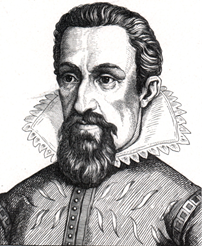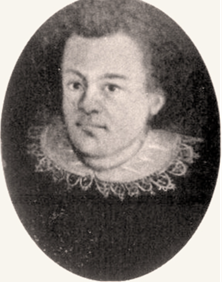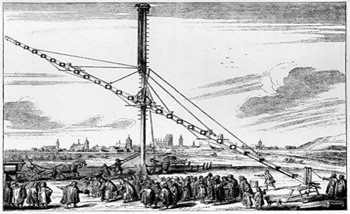Johannes Kepler and Keplerian Telescope
Johannes Kepler was a German astronomer, mathematician, and natural philosopher known for his work in astronomy, optics, and the invention of the Keplerian telescope. Kepler’s telescope design, known as the Keplerian telescope, used a convex lens for the eyepiece and a concave lens for the objective, providing higher magnification and a wider field of view compared to the Galilean telescope. Keplerian telescopes are still used today in niche applications such as military reconnaissance and scientific research. They are valued for their ability to gather and focus light, higher magnification capabilities, versatility, wider field of view, and the use of two convex lenses.
Who is Johannes Kepler?
Johannes Kepler was a German astronomer, mathematician, and natural philosopher born on December 27, 1571, in Weil der Stadt, Württemberg, Holy Roman Empire (present-day Germany). He is best known for his work in astronomy, particularly for formulating the three laws of planetary motion, which describe the orbits of planets around the Sun. Kepler’s laws, published between 1609 and 1619, revolutionized our understanding of the solar system and paved the way for Isaac Newton’s theory of universal gravitation. Kepler was also a renowned mathematician and astrologer during his time. He aspired to be recognized as a philosopher who investigated the innermost structure of the cosmos scientifically. Kepler made significant contributions to the field of optics and mathematics. He attempted to develop various technical devices, such as a water pump, demonstrating his inventive spirit. Kepler’s work influenced many scientists, including Isaac Newton, providing one of the foundations for his theory of universal gravitation. Kepler is considered one of the key figures in the 17th-century Scientific Revolution. He has been described as the “father of science fiction” for his novel Somnium. Kepler died on November 15, 1630, in Regensburg, Germany.

Figure 1: Johannes Kepler (1571-1630)
What is Keplerian telescope?
Keplerian telescopes are an improved version of the refracting telescope design and were invented by Johannes Kepler. They are known for their use of convex objective lenses and concave eyepieces. The main attributes of a Keplerian telescope include a lens at the front, a long tube, and an eyepiece or instrumentation at the rear. The purpose of the convex objective lens in a Keplerian telescope is to collect and focus light from distant objects, determining the telescope’s field of view, magnification, and overall performance.
The Keplerian telescope, invented by Johannes Kepler in 1611, is an improvement on Galileo’s design. It uses a convex lens as the eyepiece instead of Galileo’s concave one. The advantage of the Keplerian design is that the rays of light emerging from the eyepiece are converging, allowing for a much wider field of view and greater eye relief. The image for the viewer is inverted, and considerably higher magnifications can be reached with this design. The Keplerian telescope, like the Galilean telescope, still uses a simple single element objective lens, and needs to have a very high focal ratio to reduce aberrations. The design of the Keplerian telescope allows for use of a micrometer at the focal plane to determine the angular size and/or distance between objects observed. An additional convergent lens is provided between the objective and the eyepiece to right the image, making the instrument rather long, and the tube is often constructed to be collapsible. The Keplerian telescope produces a “real” image, meaning that the image can be projected onto a screen or made visible through the eyepiece. The Keplerian telescope is the basis for the modern refractive telescope, which is widely used for astronomical observations and other applications requiring high magnification and a clear, stable image.
What was Johannes Kepler’s Telescope Design?
Johannes Kepler’s telescope design was an astronomical telescope known as the Keplerian telescope. It was an improvement upon the Galilean telescope, which was the first refracting telescope invented by Galileo. Johannes Kepler improved upon Galileo’s telescope design by using a convex lens for the eyepiece instead of a concave lens, which allowed for a wider field of view and greater magnification. The key features of Johannes Kepler’s telescope design were a concave eyepiece lens and a convex objective lens. The concave eyepiece lens and convex objective lens worked together to provide higher magnification and a wider field of view compared to the Galilean telescope design. The images observed through Kepler’s telescope were inverted, so anything observed through the telescope was upside down. The Keplerian telescope design allowed for considerably higher magnifications, but like the Galilean telescope, it still used a single element objective lens and needed to have a very high focal ratio to reduce aberrations. The design of Kepler’s telescope allowed for use of a micrometer at the focal plane to determine the angular size and/or distance between objects observed. The limiting factor of early refractors, including Kepler’s telescope, was their small field of view. For example, only part of the full Moon could be seen at one time. The main purpose of Johannes Kepler’s telescope design was to provide a sharper image for observing celestial objects. The wider field of view and higher magnification capabilities of his telescope design allowed astronomers to observe and study celestial objects more effectively. The tube length of Kepler’s telescope design was 46 meters (150 feet), which further magnified the image and improved the clarity of the image, contributing to advancements in astronomy. Kepler’s telescope design was famous for its ability to reach much larger magnification levels than the Galilean telescope, although that process demanded a significant increase of focal length between lenses.
Did Johannes Kepler Invent the First Telescope?
Johannes Kepler did not invent the first telescope. He was an astronomer and mathematician who made important contributions to the development and improvement of telescopes during the 17th century. Kepler did fundamental work in the field of optics, being named the father of modern optics, in particular for his Astronomiae pars optica. He also invented an improved version of the refracting telescope, the Keplerian telescope, which became the foundation of the modern refracting telescope, while also improving on the telescope design by Galileo Galilei. Kepler collaborated with the Dutch optician, Hans Lippershey, who is often credited with the invention of the first telescope. Kepler worked as an assistant to Tycho Brahe, where he had the opportunity to study optics and the design of telescopes. He wrote extensively about telescopes and made significant innovations to their design, including the invention of the Keplerian telescope. Kepler’s contributions to the development of telescopes ultimately led to the advancement of astronomical observations and our understanding of the universe.
Are Keplerian telescopes used today?
Keplerian telescopes are still used today, primarily in niche applications such as military reconnaissance and some specialized scientific research. For example, they are used in the study of particle physics to track the paths of high-energy charged particles. Their use in astronomy is limited, with most amateur and professional astronomers opting for reflecting telescopes. The main attributes of Keplerian telescopes that make them suitable for modern-day use are their ability to gather and focus light, higher magnification capabilities, versatility for both astronomical and terrestrial observation, wider field of view, and the use of two convex lenses in the design. Factors contributing to the ease of use of Keplerian telescopes include the use of convex lenses for a wider field of view and the advancements made by Johannes Kepler in the design of the telescope. The level of portability of Keplerian telescopes is lower compared to Galilean telescopes due to their longer and bulkier design, as well as the increased optical complexity requiring additional lenses. The typical field of view for a Keplerian telescope can range from approximately 5 to 115 degrees, with some models offering even wider fields of view. The typical field of view for a Keplerian telescope is approximately 1-2 degrees. The average cost of a Keplerian telescope can range from a few hundred dollars for a small amateur telescope to millions of dollars for a large professional telescope. The significance of the aperture in Keplerian telescopes lies in its role in determining the light-gathering capacity and resolution of the telescope, with larger apertures providing better performance in observing celestial objects. The maximum resolution of Keplerian telescopes is determined by the telescope’s aperture, with a 4-inch (100mm) refractor telescope having a maximum theoretical resolution of 1.2 arcseconds. The aperture in Keplerian telescopes is a crucial component that determines the amount of light that can enter the system and ultimately affects the image quality and magnification. The light-gathering power of Keplerian telescopes is determined by the area of the telescope’s aperture, which is calculated using a specific formula.
Fun facts about Johannes Kepler
His passion for astronomy grew at the age of six when his mother took him to see the Great Comet in 1577. Despite having some physical abilities like low vision and crippled hands in childhood, he did not stop learning and soon started showing great mathematical skills. Near the end of his studies, he intended to become a minister but finally accepted the offer to be a teacher.

He started his career as an educator of mathematics and astronomy at the Protestant school in Austria, and later, he became the royal mathematician of Emperor Rudolf II. He published his first book on astronomy named ‘Mysterium Cosmographicum’ the next year he joined the school where he modernized the Copernican system. There he defended heliocentrism establishing the fact that in the universe, the sun is the only primary source of motive power.
Meanwhile, during his assistantship under well-known astronomer Tycho Brahe, he could deal with more accurate astronomical data using Tycho’s Observatory. There he came up with the revolutionary idea of the planetary pathway named orbit and the first two laws of planetary motion, which he published in the book ‘Astronomia nova.’ However, he articulated the third law of planetary motion in another book, ‘Harmonice Mundi.’ Finally, he established his own astronomical system in his book ‘Epitome of Copernican Astronomy.’
Keplar is quite famous for these laws of planetary motion because he was the first who could think beyond the popular circular-orbit system. He proposed that the planetary paths are elliptical, and now we certainly know that he was absolutely correct. Applying his theories, the movements and the positions of the planets can be measured more accurately than before.
Law 1: Law of Ellipses – The planets orbit the sun in an elliptical pathway.
Law 2: Law of Equal areas – A straight line connecting a planet and the sun passes through equal areas in the same duration of time.
Law 3: Harmonic Law – The square of the orbital period of a planet is directly proportional to the cube of its average distance from the sun.
This extraordinary talented scientist also worked as an astrologer. This is surprising because now we know that astrology is nothing scientific and is based on ancient assumptions and mythology. Sir Oliver Lodge, an English physicist, said regarding this issue that Kepler was paid for his astrological knowledge and suggestions, but he could sense the disdain for astrology.

Figure 3: The 45 meter long telescope in the picture is ‘the Keplerian Telescope’.
Moreover, Kepler upgraded some features of the Galilean telescope based on his research on lenses. He used double convex lenses here, which could magnify the image higher than Galileo’s concave-convex lens. Later, in around 1673, after his death, ‘Keplerian Telescope’ was developed based on his design.
Books by and about Johannes Kepler
Johannes Kepler: Giant of Faith and Science (Sowers)
John Tiner is a well known mathematician and scientist for his books mostly. He was a religious Christian and later became a scientist just like Kepler. We know that the great astronomer Kepler always wanted to prove that God had created the universe. So Tiner could insight Kepler’s dedication as an astronomer and faith in his religion to what he tried to present in this book.
Max Casper was a mathematician who spent most of his life researching Kepler’s personal life and his work. In this book, the author presented a detailed study on Kepler’s public life and work.
You will find several more books on the biography of this great German mathematician and astronomer. You will discover how much he tried to find the relation between his religional insights and his scientific discoveries. Hope you will learn more about him beyond planetary theories.

